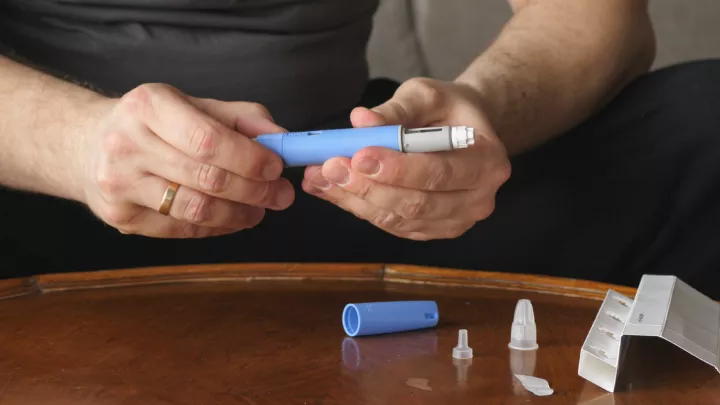How one Nebraska Medicine doctor decided weight-loss surgery was for her

First, you have to realize I’ve had weight-loss surgery twice. That means I’ve had to make the big decision twice whether it was worth the price. And I will tell you up front, it wasn’t an easy decision.
My health insurance does not cover these surgeries, so I had to self-pay for both of them. But I knew both times I made the right decision when I went ahead with the surgeries.
Let me tell you my story, to help you make your own decision.

First, I had gastric band surgery – then, 11 years later, the band slipped and I began gaining weight again. With that extra weight, I developed a serious knee problem which made exercise very difficult – which led to more weight gain, putting me on the path to diabetes.
An orthopaedic surgeon advised me to get knee surgery – but wouldn’t do the surgery until I lost 5 to 10 pounds. He didn’t advise me to have bariatric surgery; he left the weight loss issue up to me.
The question that emerged was, should I try to lose that weight to have knee surgery – or have bariatric surgery to lose the weight? Which surgery would be the best investment?
At that point, my husband asked me a critical question: What would you tell a patient?
That’s when I put on my doctor hat.
As a bariatric surgeon, I would advise patients that bariatric surgery to lose weight was worth serious consideration – because you can lose enough weight that you don’t need knee surgery.
With that weight loss, you can exercise again, lose even more weight — and maintain the weight loss.
The answer became obvious. Weight loss would not only take care of my knee but also the multiple diseases I was developing – diabetes, heartburn and sleep apnea. Rather than single disease-oriented thinking, how about a solution that addresses multiple diseases? That’s when I knew I needed another bariatric surgery – gastric sleeve surgery.
But the issue of surgery cost was still hounding me.
Here’s what I decided:
In my mind, these operations are about the price of a car. The gastric band surgery was about $11,000; the gastric sleeve was about $16,000 — the price of a good, solid inexpensive car.
Would I invest in a car that would improve my health, my quality of life? Of course I would!
In many ways, my most serious health issue was pre-diabetes. The surgery would help prevent me from developing diabetes and everything that comes with it — taking multiple medications every day to control blood sugar, sticking my finger four times a day, injecting insulin every day.
It was an investment in many ways, in hopes of avoiding diabetes. For me, it was worth the investment in terms of longer life.
People with normal weight live longer than people who are obese and do not have the surgery.
That’s something insurance companies and employers need to understand. Bariatric surgery makes a big difference in an employee’s health. There’s good scientific data showing it improves health, decreases diabetes, high blood pressure, high cholesterol, sleep apnea – and you can get off the C-Pap breathing machine.
When employees are healthier, they miss fewer sick days and have fewer doctor appointments, so they’re more productive at work. There are lots of reasons why an employer should cover this surgery, but many don’t cover it.
Even if your employer won’t cover the surgery, it’s still worth making the investment in covering the cost yourself.
I’ve had patients who take money out of 401k to finance this surgery. After all, what if you don’t live until age 65 to use the money? It’s depressing but it’s a fact.
I don’t encourage anyone to run up credit card bills to do this because of incredibly high interest rates. Taking out a low interest loan is really a better idea. If you’ve got a financial advisor, ask them.
In our Bariatric Surgery Clinic, we help patients weigh the decision to have the surgery. We help you figure out the financial aspect – and have multiple programs to make sure your surgery is a success.
Is it time to schedule an appointment to discuss bariatric surgery? We look forward to meeting you and helping you on your weight loss journey.




